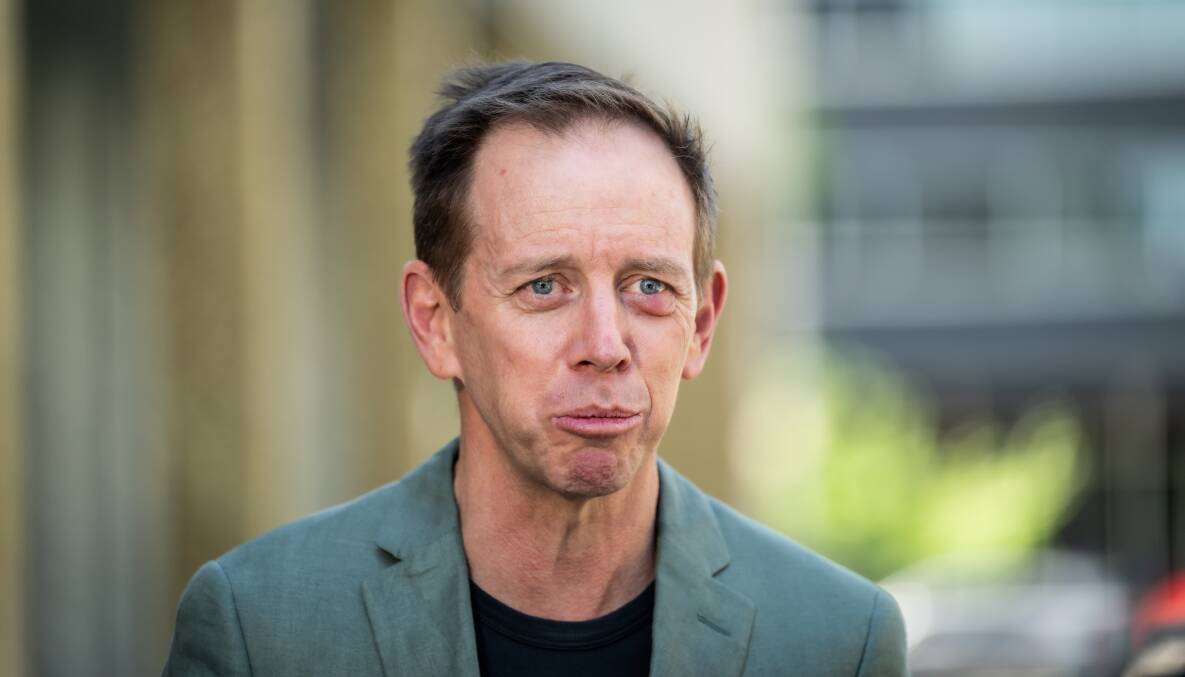Biofuels and reducing the number of short plane trips in and out of Canberra would help the ACT reduce the growing amount of greenhouse gas emissions associated with aviation, the Emissions Reduction Minister has said.
Shane Rattenbury said the aviation sector contributed a small part of the territory's overall emissions, but would need to be addressed as part of action to reduce transport pollution.
The latest snapshot of Canberra's emissions was released on Thursday, showing a post-COVID travel rebound had contributed to growing transport emissions in the territory.
Transport contributed 64.5 per cent of the territory's overall emissions in 2021-23. Total emissions have fallen 47 per cent since 1989-90 while Canberra's population has grown by 67 per cent.
Mr Rattenbury said short aviation trips were the easiest to tackle, such as flying between Canberra and Sydney.
"There are good alternatives, particularly if we can upgrade our rail network and make it a more attractive option," Mr Rattenbury said.
"Getting a decent rail line to Sydney, I think, would encourage a lot more people to travel that way.

"If you cut the rail travel time down to maybe two-and-a-half, three hours, it actually becomes very time competitive with the flight. Once you get to the airport, go through security, get delayed by fog, rail becomes very competitive in those circumstances."
Chief Minister Andrew Barr this week revealed he had written to Prime Minister Anthony Albanese to put a feasibility study for Canberra-to-Sydney rail upgrades on the agenda as a joint funding priority for the territory.
Mr Barr last year ruled out "flight shaming" people for catching planes and said encouraging the aviation industry was still compatible with fighting climate change.
"Yes, we are in a climate emergency but that does not mean aviation should not exist. I reject the argument that this industry, like any other emitting industry, cannot take the time that's necessary to evolve to reduce its emissions," Mr Barr told a budget estimates hearing in August 2022
On Thursday, Mr Rattenbury said the large reduction in emissions had been achieved by moving to offset 100 per cent of the ACT's electricity supply with renewable power.
"We are seeing transport emissions as a real problem area as the city grows, as the population grows with an increasing number of cars in the fleet, that is definitely driving up transport emissions," he said.
The ACT intends to switch to a zero-emissions public transport fleet and will ban new internal combustion engine cars from 2035 as part of efforts to reduce transport emissions.
The 2022-23 emissions report said the ACT government's own emissions had increased by 0.96 per cent above the baseline level, largely as a result of acquiring and occupying new buildings and facilities.
"The significant reduction in emissions from Canberra Health Services is largely due to the divestment of existing buildings at the Canberra Hospital," the report said.







